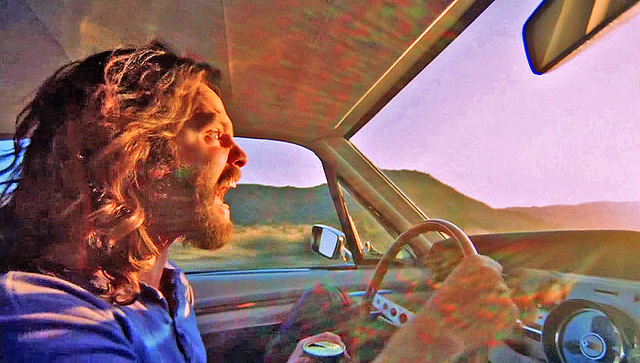
Fear will always be there, always present.
It’s about how we can manage it, get comfortable with it, and break through it.
How do I get from point A to point B? Where point A is being stopped by fear, and point B is breaking free from fear.
Fear isn’t only in the mind, it’s a feeling as well.
If there one thing I haven’t yet learned how to do comfortably, it’s cold calling.
And it’s not just a matter of what to say, having a script, or getting organized.
It’s also not only about confidence.
Ever since I could remember, I didn’t like cold calling, and always felt fearful, uncomfortable.
To the point that I was literally freezing and paralyzed when faced with the prospect of having to cold call someone. I could stare at a number, or the phone, for hours.
Hours and hours going through my imagination, and letting it run wild with the many emotions and scenarios. Going back and forth between fear, confidence, comfort, and discomfort.
The reason why fear is so powerful, is because it’s not purely logical. Fear has a strong feeling component as well to it.
We don’t get affected by fear because things don’t make logical sense. We’re stopped by fear because we feel that we might get hurt, and that bad things will happen to us, if we follow through.
And that’s not always the case.
It’s scripting.
Fear is borne out of past experiences. It is borne out of how we understand the world, and what has worked out so far in our lives, and how we manage to survive.
Not only how do we survive physically, but also how we survive emotionally.
When I was young, older people kept telling me not to bother them. I learned that bothering people was bad.
The only problem was, I equated bothering people, with going after my own agenda, or making a request, or making people aware of something helpful or important.
When I was young, my mom would keep telling me to not talk to strangers. I learned that strangers were bad, and that they would do bad things to me if I talked to them.
What am I doing now, cold calling? Talking to strangers.
The only problem was, I equated talking to strangers as people I don’t know wouldn’t want to talk to me, and that they would do bad things to me given the chance.
That lesson was only further enforced by the bullies while I was growing up.
Wrong. All wrong.
Those are scripts in my head, body, and heart. In my logic and in my emotions. That’s the scripting and conditioning that I’ve been exposed to, and that run automatically in my life, had I not begun to be aware of them.
Had I not begun to see and feel how unhelpful they are, and how they’ve been stopping me from success.
They’re unhelpful habits, borne out of repetition, intensity, or accumulation.
It’s not as simple to stop or change
Our habits, physical, mental, emotional, also experience momentum. Just because you recognize the change needed, or you see that you need to start, or stop doing something, doesn’t make it easier to do so.
We need repetition, rituals, and conscious effort to do so.
It’s not as simple as “I quit!”. That’s actually worse. To storm off declaring that you can’t do it. Leaving unfinished business, and not taking responsibility for it, will only serve to hurt you, and others.
It’s also not as simple as “just do it!”. That’s only the start, and it can get you started, but it won’t be able to sustain you, give you comfort with what you’re doing, and doesn’t put a focus on excellence.
All it says, is just do it, whatever happens, whatever is in front of you.
That served me at the start, but as time went one, and I didn’t move past the “just do it!” phase, I just kept getting tired emotionally, and mentally.
It became harder and harder for me to “just do it!”. Then, I knew that I was doing something wrong.
This isn’t some one-time bungee jump, or rollercoaster ride, or girl you ask out on a date.
This isn’t a one-time thing.
This is about living life day to day, and getting comfortable with fear.
Developing comfort.
There will always be fear. There will always be uncertainty.
It’s up to us to face them, overcome them, get comfortable with them, and in turn, lead and manage ourselves.
There are practices to break through fear, grow with it, and get to the point of comfort.
But all of the practices will be for naught without the self-awareness.
Recognize how the fear plays out, and lives out in your daily life.
How does it affect you? What feelings arise? When does that happen?
Identifying your fear, and your triggers, is the first, and most important, step to breaking through them.
Stand by for Part 2, where I share actionable tips on how to break through fear.
What’s something you’ve been afraid of doing, for the longest time? Please share in the comments below!

[…] see part 1, click here. I recommend you read that […]